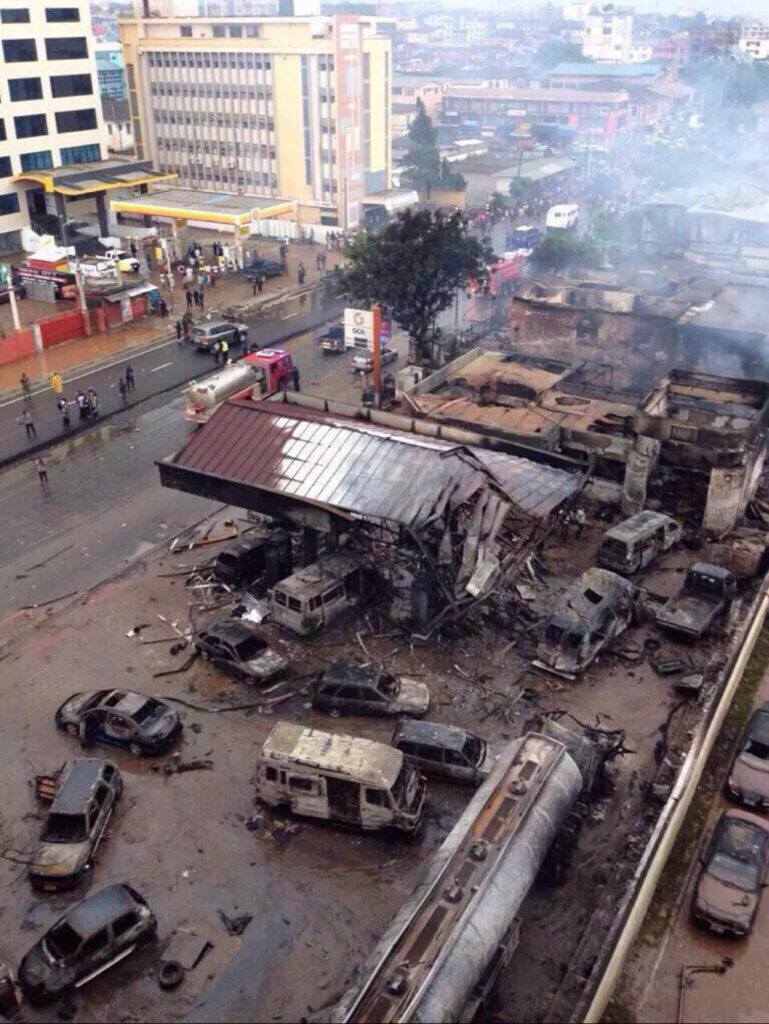Remembering June 3: A Tragedy That Changed Ghana Forever

On June 3, 2015, Ghana witnessed one of the darkest days in its modern history. What started as a heavy downpour quickly turned into a catastrophic disaster that claimed over 250 lives, injured hundreds, and left the entire nation in mourning. The tragedy at Kwame Nkrumah Circle wasn’t just a natural disaster—it was a painful wake-up call.
What Happened at Kwame Nkrumah Circle?
That fateful evening, Accra was hit by torrential rains, causing widespread flooding, especially around the Kwame Nkrumah Circle area. The drainage systems were overwhelmed, largely due to years of neglect, poor waste management, and unplanned urban development.
As the floodwaters rose, many people sought shelter at the GOIL fuel station near the Circle. Tragically, the flood caused a fuel leakage, and it is believed that a lit cigarette or another spark ignited the fuel. Within moments, a massive explosion erupted, engulfing the area in flames. Vehicles, buildings, and human lives were consumed in an inferno that shocked the entire nation.
National Response and Mourning
In the aftermath, then-President John Dramani Mahama declared three days of national mourning. A GH₵60 million relief fund was announced to support the victims and their families. But the damage had already been done — hundreds of families lost their loved ones, and the emotional scars remain deep.
The nation mourned not just the lives lost but also the conditions that allowed such a tragedy to happen. Citizens, civil society groups, and the media raised urgent questions about Ghana’s infrastructure, emergency preparedness, and commitment to urban planning.
10 Years Later: What Have We Learned?
As we mark the 10th anniversary of the June 3 disaster, it’s important to reflect — not just to remember, but to evaluate. Have we done enough to prevent such tragedies from happening again?
- Are our drainage systems better maintained?
- Is urban planning prioritized in policy and practice?
- Do we have emergency systems capable of responding swiftly to disasters?
These are not just questions for the government—they are questions for every citizen, planner, developer, and leader.
We stand with the families who continue to grieve.
We honor the memories of the lives lost.
And we call on every Ghanaian to push for a safer, more prepared future.
Let June 3 never be forgotten.
Let June 3 never happen again.